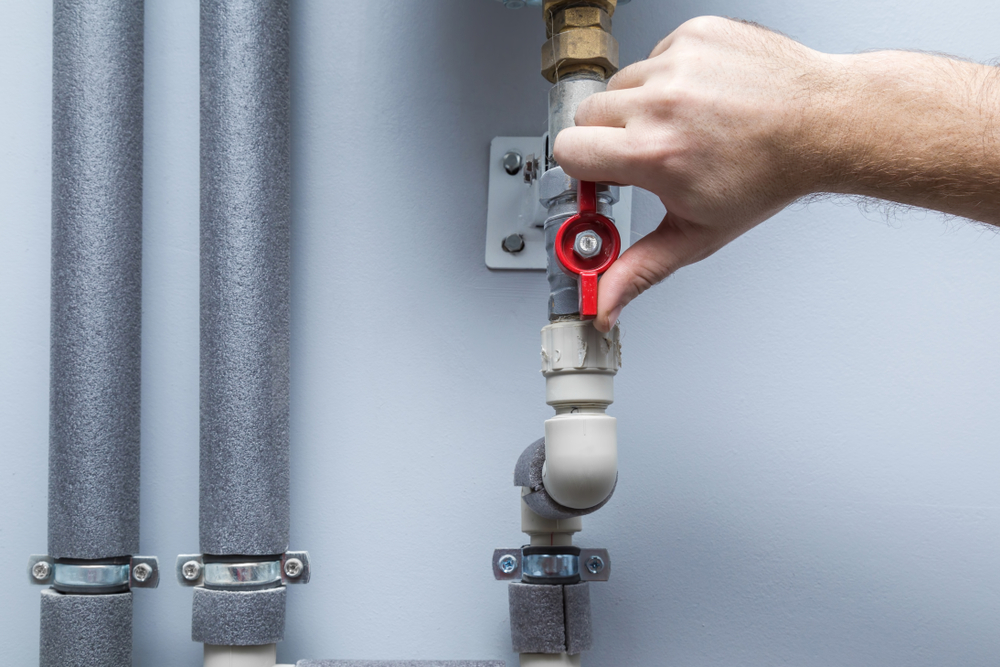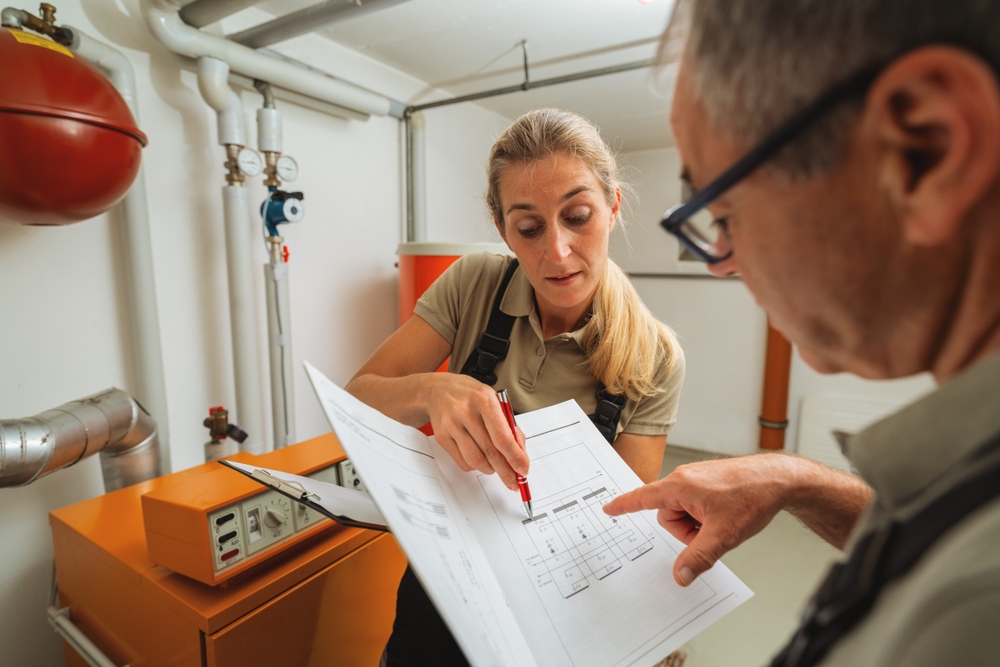Emergency Water Heater Shut Off Procedure: What to Do in Case of Emergency?

A leaking water heater can lead to big problems. The best way to mitigate water heater leaks is to know how to perform an emergency shutdown.
If you don’t know how to shut down your water heater, don’t worry. That’s why we’re here. Remember that water heater complications can be dangerous if not dealt with right away. Prevent issues by routinely checking your water heater and calling a professional.
Why Would You Need to Shut Down a Water Heater?
Shutting down your water heater helps prevent major water damage. If you’re having trouble locating the water heater’s power source, it might be helpful to contact a local service provider like Dauenhauer. Even in emergencies, we’re available to help. For an in-depth overview of your home water heater, call Dauenhauer today for emergency water heater repair.
Here are a few scenarios that require a complete shutdown:
- Gas leaks
- Water leaks around the heater
- Overheating signs, noises, or electrical issues with the water heater
Essential Safety Precautions Before Starting
Becoming familiar with the functions of your home’s water heater is a precaution in itself. It’s also important to know manufacturer information like the make and model. Stay vigilant against water damage by knowing how to navigate your water heater.
Identify the Type of Water Heater
Firstly, figure out what type of water heater you have. The most common types are gas and electric. From here, you can follow instructions to shut off your specific model. We recommend contacting a local professional service if you’re having issues identifying your heater. They can guide you through locating your water heater’s manufacturing information.
Important Safety Tips
As always, make sure to create distance between yourself and the heater. While you may believe you’ve contained the issue, water can still leak without warning.
To ensure safety, always wear protective gear around your heater. Goggles and gloves are recommended. If you have a gas heater, make sure that the space it’s in is well-ventilated. This ensures a safe, easy-to-breathe environment.

Steps for Shutting Down a Gas or Electric Water Heater
Now that we’ve discussed safety, it’s time to learn how to shut off a hot water heater. Gas or electric, there are specific steps that must be followed. The longer you allow your damaged water heater to run, the greater the repair costs will be.
That’s why our experts at Dauenhauer emphasize knowing how to effectively shut off your water heater. In the event of a water heater malfunction, follow these emergency shutdown procedures:
Step 1: Turn off the gas supply or electricity.
For gas heaters, all you need to do is locate the on and off switch. This is usually located at the top of the thermostat. Use the circuit breaker for electrical heaters. The circuit breaker will have a similar on-and-off switch, and all you need to do is turn it to OFF.
Step 2: Shut off the water supply.
Before shutting off the main water valve, try the water heater’s valve. All you have to do is turn the handle clockwise. If you do this and still see an active water supply, try turning off the main water valve.
Step 3: Drain the tank if necessary.
Sometimes draining the entire tank is necessary. For leaks, it might make sense to drain the water to prevent more issues. To drain, attach a hose at the bottom of the tank. Connect the other side of the hose to a different outlet so water can be released.
Step 4: Open the relief valve.
Finally, you’ll want to switch on the relief valve. This releases the pressure built up within the tank. Simply switch the handle into an upright position and step away from the tank. Hot, steaming water will rise to the top.

Checking for Gas Leaks After a Gas Water Heater Shut Down
If you suspect that gas has leaked into your home, use this simple discovery method. Apply a soap and water solution to possible leak points. You’ll want to include the gas line, as this area is subject to the most impact. If bubbles form, this indicates that gas has leaked from the heater.
In the event of a gas leak, leave the area and contact a professional immediately.
When to Call a Professional
We recommend calling a professional at the first sign of heater failure. Even if it’s just a small malfunction, more severe damages could be brewing. Water heaters maintain a universal lifespan of 8-12 years. With proper maintenance, this lifespan could be extended. For more information about your specific model’s lifespan, check its warranty. If you can’t locate this information, call Dauenhauer for assistance.
Catch water heater malfunctions before they become a problem. Check for these common issues:
- Visible water damage or major leaks
- Persistent gas odor
- Electrical issues that may be hazardous
Additional Tips for Water Heater Maintenance to Prevent Emergencies
Like many things, water heaters need frequent maintenance to remain in working order. Regular inspections, preferably done by an expert, help reduce unnecessary damage. Block out leaks, breaks, or malfunctions with detailed, professional maintenance. Keep your water heater in great shape with the help of Dauenhauer. Call us today!